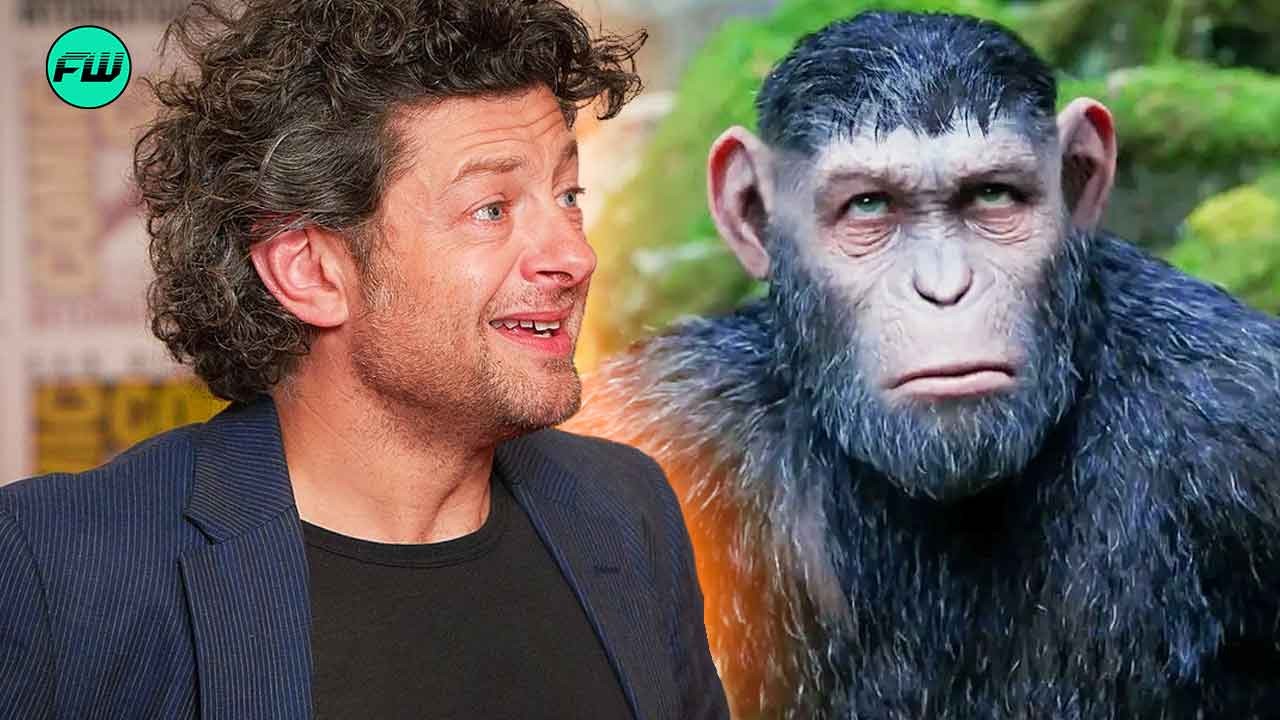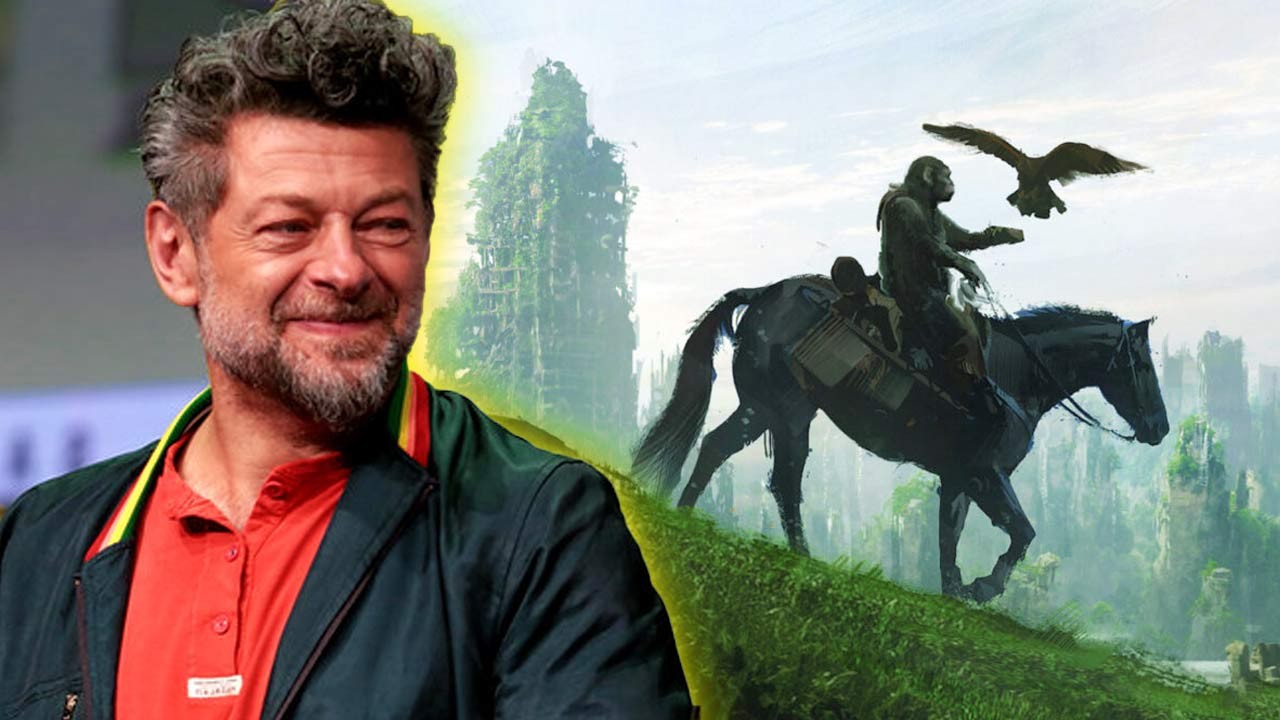There may have been several renditions of the Planet of the Apes franchise but it is Andy Serkis’ phenomenal performance in the 2011 reboot that solidifies him as the inimitable legend who can never be surpassed as far as the role of Caesar is concerned. In simple terms, Andy Serkis is to Caesar what Heath Ledger was to the Joker and in his core, the motion-capture actor has mastered the ape in a way that no other actor can or ever will be able to mimic.
Andy Serkis Delivers a Masterclass in Method Acting
When Andy Serkis took up the titular role in King Kong, the actor had done ample research to validate his authority over the classically iconic ape. As an added bonus, his research served its purpose on the sets of Rupert Wyatt’s Planet of the Apes reboot. However, Serkis’ commitment to the role went above and beyond what the film demanded of him insomuch that he’d make even Lee Strasberg proud.
“I always approached Caesar in Rise as a chimpanzee who believed himself to be a human inside of a chimpanzee body. I based him on a real chimpanzee called Oliver who in the 1970s was known as the humanzee…
The way he carried himself bipedally, the way he’d sit down, his facial expressions were all incredibly human. People really did think he was this progeny of ape and man. He was carted around as a sort of freak and then disregarded once it was realised he wasn’t the missing link. That character stood out as a good touchstone to me.”
However, the close study of Oliver was not the only basis of Andy Serkis’ method process. The actor refused to stop embodying Caesar’s entire journey from birth to his rise as a leader in the actual pace that would guide the primate in his real-life arc. In fact, Serkis’ approach toward the character was so detailed that his process alone should be studied as a masterclass in method acting.
Andy Serkis Goes Above and Beyond in His Pursuit of Caesar
From his conception to his reign in War for the Planet of the Apes, Andy Serkis lived and breathed Caesar just as much as he walked and talked like him. In striving to bring authenticity to the role, Serkis physically, emotionally, and psychologically embedded himself in Caesar’s character arc and with every step that he took as Caesar, he thought like him, talked like him, and even improvised to tweak his mannerisms to mimic the mental evolution of the ape.
To Serkis, Caesar was the equivalent of “a gifted pianist who could play Mozart at the age of three or four.” At the same time, he also understands how Caesar is an outsider to both worlds — human and ape — thus allowing him to sympathize with others different from him, and galvanize them in the war against humans and the virus.
From the staccato vocalizations to full use of the human vocabulary, Andy Serkis modeled the growth of his character from an animalistic to a humanistic ape whose rapid progression into a more upright, philosophical, and eloquent persona also reflected other traits that usually define humans more than apes.
“In War he’s physically totally upright, he doesn’t quadruped, he’s carrying the weight of the conflict but still trying to be a peace broker until the events near the start of the movie send him off on his journey, taking him into a part of Caesar we hadn’t seen before. As he became more human-like he’s feeling the most base, rawest, animal-like instincts of aggression.”
Caesar’s death after the events of War for the Planet of the Apes did justice to his legacy by delivering a glorious send-off that paralleled the arcs of Hugh Jackman in Logan and Robert Downey Jr. in Endgame. Set 300 years after his reign, Kingdom of the Planet of the Apes brings Serkis’ legacy back in memory only but given the aggressive context of the film, there is very little opportunity for the film to delve into the events of the interim.
However, in an ideal world (or, one guided by the greed of a studio in charge of a multimillion-dollar franchise), Caesar must live on and Serkis must return in future spin-offs. Only then can the audience accept the franchise spawning into a newer, younger model without disrupting its roots in the one established by the legendary Andy Serkis.
Kingdom of the Planet of the Apes will premiere on May 10, 2024 in the US.


![Andy Serkis portraying Caesar in mo-cap [Photo David James, Twentieth Century Fox Film Corporation]](https://fwmedia.fandomwire.com/wp-content/uploads/2024/05/05111012/Andy-Serkis-portraying-Caesar-in-mo-cap-Photo-David-James-Twentieth-Century-Fox-Film-Corporation.jpg)
![Caesar in Dawn of the Planet of the Apes [Credit: 20th Century Studios]](https://fwmedia.fandomwire.com/wp-content/uploads/2024/05/05110613/Caesar-in-Dawn-of-the-Planet-of-the-Apes-Credit-20th-Century-Studios.jpeg)

![Kingdom of the Planet of the Apes [Credit: 20th Century Studios]](https://fwmedia.fandomwire.com/wp-content/uploads/2024/05/05110922/Kingdom-of-the-Planet-of-the-Apes-Credit-20th-Century-Studios.jpeg)
